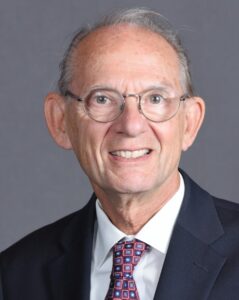 CHICAGO—During ACR Convergence 2025, the ACR and ARP honored a group of individuals who have made significant contributions to rheumatology research, education and patient care by announcing the recipients of the ACR’s 2025 Awards of Distinction and the 2025 ARP Merit Awards, as well as the 2025 ACR Masters and the 2025 ACR Distinguished Fellows, recognized for their contributions to the field.
CHICAGO—During ACR Convergence 2025, the ACR and ARP honored a group of individuals who have made significant contributions to rheumatology research, education and patient care by announcing the recipients of the ACR’s 2025 Awards of Distinction and the 2025 ARP Merit Awards, as well as the 2025 ACR Masters and the 2025 ACR Distinguished Fellows, recognized for their contributions to the field.
Presidential Gold Medal
 The highest award the ACR can bestow, the Presidential Gold Medal, is awarded in recognition of outstanding achievements in rheumatology over an entire career. This year’s Presidential Gold Medal Award recipient is Eric L. Matteson, MD, MPH, FACP, MACR, MPANLAR, emeritus John F. Finn Professor of Medicine and Emeritus Chair, Division of Rheumatology, Mayo Clinic, Rochester, Minn., with joint appointment in the Division of Epidemiology, Department of Quantitative Health Sciences, Mayo Clinic.
The highest award the ACR can bestow, the Presidential Gold Medal, is awarded in recognition of outstanding achievements in rheumatology over an entire career. This year’s Presidential Gold Medal Award recipient is Eric L. Matteson, MD, MPH, FACP, MACR, MPANLAR, emeritus John F. Finn Professor of Medicine and Emeritus Chair, Division of Rheumatology, Mayo Clinic, Rochester, Minn., with joint appointment in the Division of Epidemiology, Department of Quantitative Health Sciences, Mayo Clinic.
“Receiving the ACR Gold Medal is the highlight of my career because it represents recognition by my colleagues of the contributions to the field and to the American College of Rheumatology that I have been fortunate to have had a part in with them over the past decades,” says Dr. Matteson.
Dr. Matteson obtained his medical degree at Friedrich-Alexander University Erlangen-Nürnberg, Germany. He completed residency in internal medicine in the Michigan State University system in Kalamazoo and rheumatology fellowship at the University of Michigan, Ann Arbor, and Mayo Clinic, and received his master of public health degree in epidemiology from the University of North Carolina at Chapel Hill.
His clinical and epidemiological interests include vasculitis, especially polymyalgia rheumatica and giant cell arteritis (PMR/GCA), rheumatoid arthritis (RA) and extra-articular disease of RA, notably lung involvement, sarcoidosis, autoimmune inner ear disease and other rheumatic diseases, as well as historical aspects of rheumatology. Of particular note was his investigation of the work and life of Friedrich Wegener, leading to a nomenclature revision for Wegener’s granulomatosis to polyarteritis with granulomatosis (GPA). His drug safety work has included population-based studies on non-steroidal anti-inflammatory drugs, gastropathy and evaluation of infection and malignancy risk of rheumatic disease therapies.
Dr. Matteson’s contributions to studies of PMR/GCA have redefined their epidemiology, classification and outcome measures. With colleagues, his studies of novel uses of advanced therapies for rheumatic diseases include AT-GAM, the first study of a biologic for adult idiopathic pericarditis, the first study of a Janus kinase inhibitor for treatment of GCA, etanercept and other agents for autoimmune inner ear disease, and a biologic (rituximab) for RA lung disease, the first defined clinical trial in RA lung disease in the history of the discipline. He contributed to developing, pioneering and publishing the investigational concept of interstitial pneumonitis with autoimmune features (IPAF). With colleagues at Mayo Clinic, he was involved in studies on an AI-based program for the evaluation of drug efficacy and safety in RA. Dr. Matteson has authored/co-authored over 500 scientific publications and over 60 book chapters and several books on a variety of topics in rheumatology.



